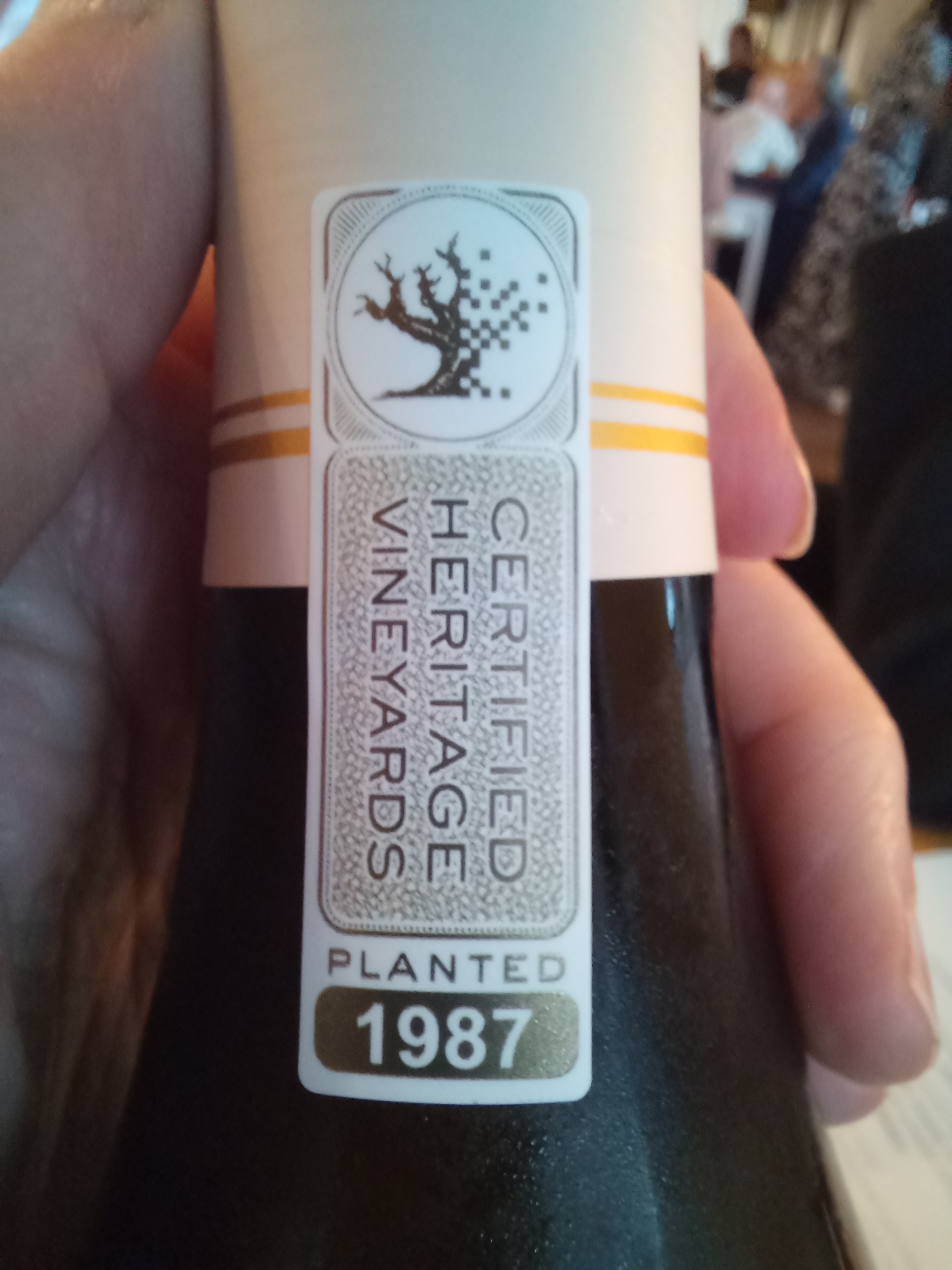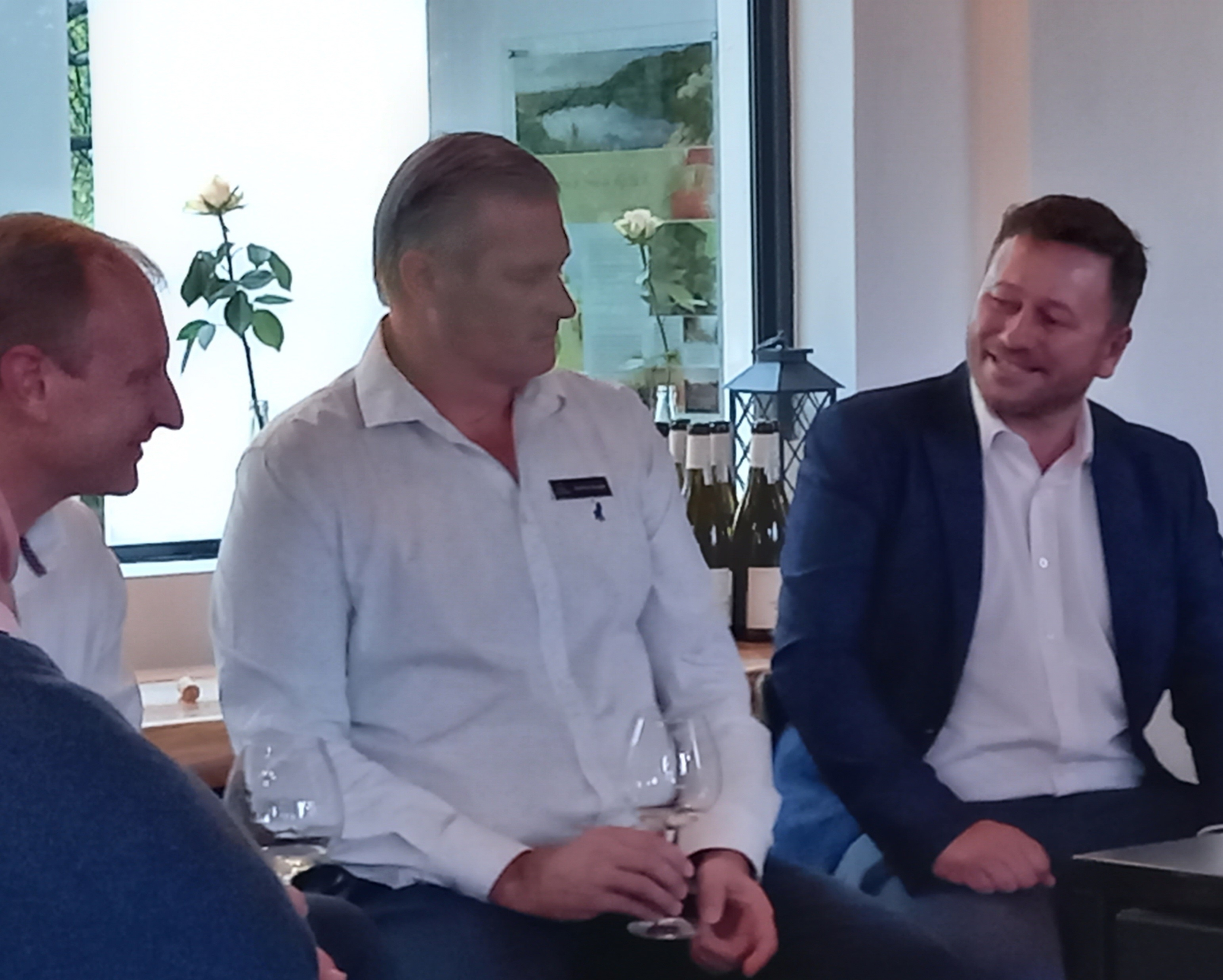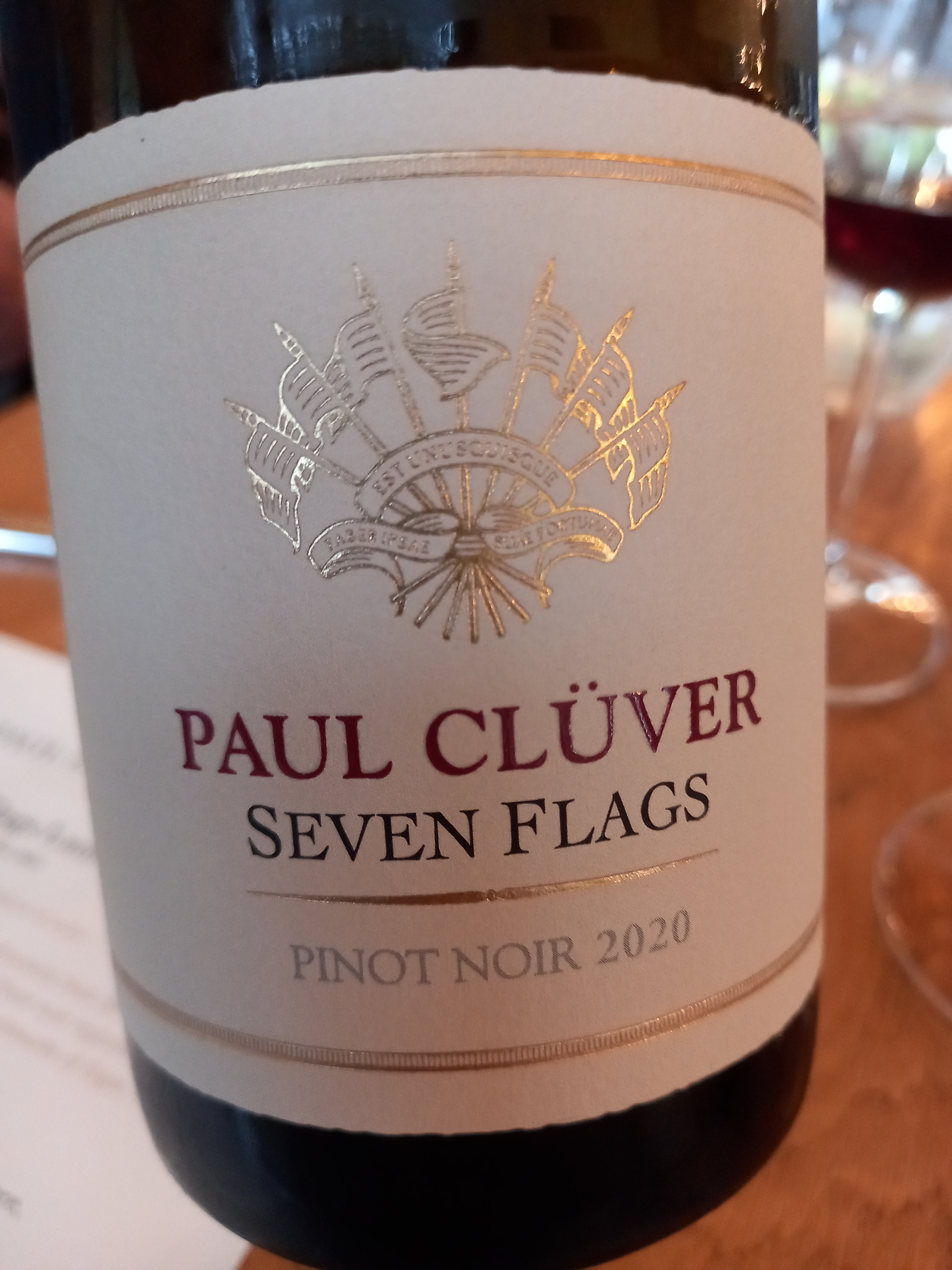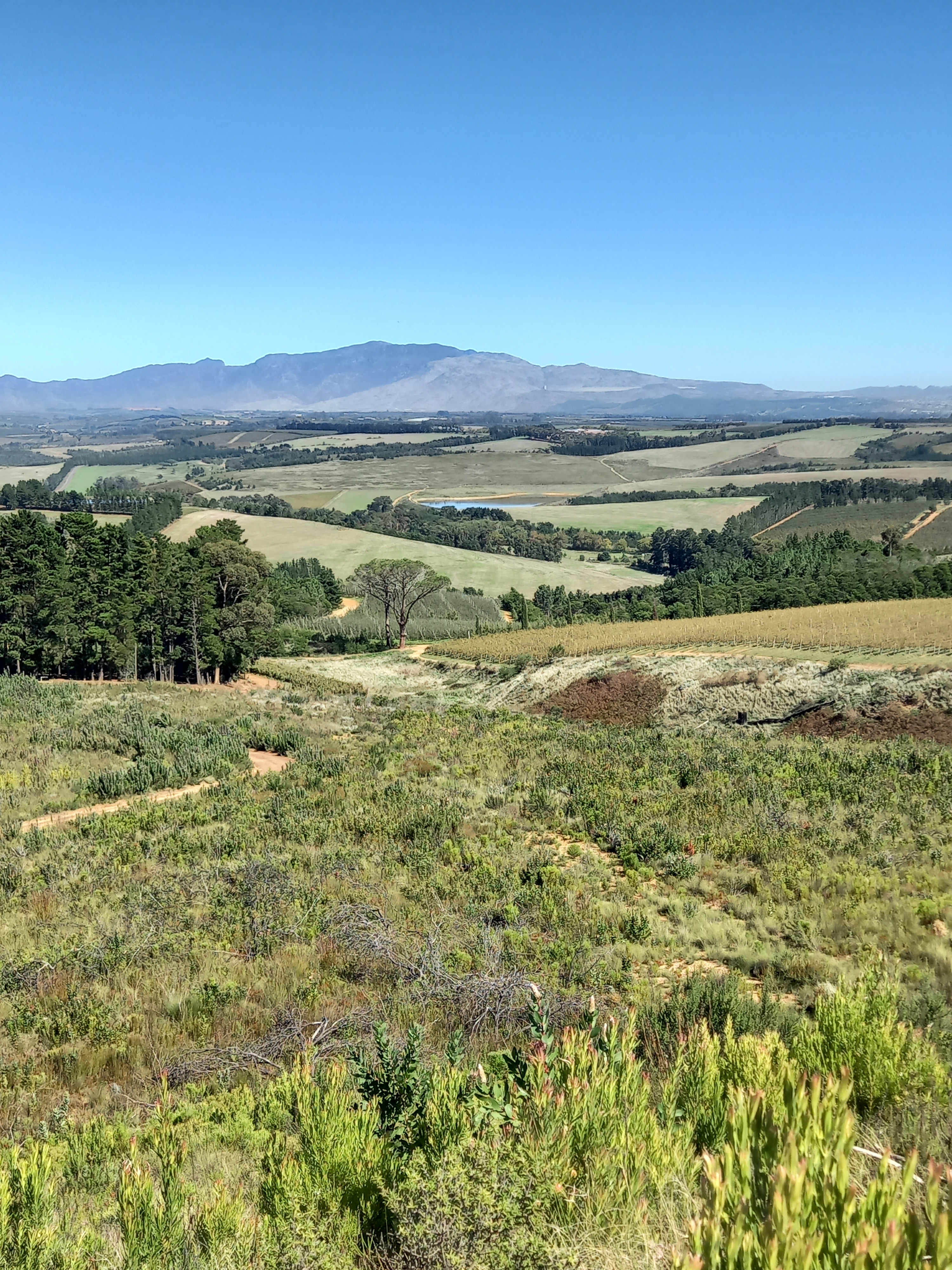Elgin used to be known as South Africa’s apple orchard. It still is – but the focus is not solely on the tempting fruit. Thirty years ago Nederburg’s viticulturist Ernst Le Roux took a punt on planting grapes in the area, believing that the cool valley was suited to Burgundian grapes, chardonnay and pinot noir. The valley’s destiny was altered with that decision.
Those first test beds were on Oak Valley and neurosurgeon Dr Paul Clüver’s De Rust farms. Looking at the Elgin valley’s numerous producers in 2024 it’s amazing that in the short space of three decades, so much growth and expansion has taken place. And continues to do so with more and more of the region’s grape farmers switching to organic and regenerative agriculture.
Back when the first plantings went into the soil in 1987, Iona, Spioenkop, Paul Wallace, Charles Fox, Kershaw, Almenkerk, La Brune, Radford Dale, Elgin Vintners, Nomad, Shannon, Highlands Road, Arumdale, Damascene, William Everson, Belfield, South Hill and Lothian were not even a thing, conceptual, wild flight of fancy or otherwise! And that’s not forgetting Tokara’s special sauvignon blanc vineyards opposite Iona, Vrede en Lust’s plantings or Thelema’s Sutherland property.

Catherine Marshall has called the valley home and Mulderbosch pioneer Mike Dobrovic bought land there too – as did the late Ross Gower. Perhaps the ultimate pioneer was Neil Ellis. When he was making wine at Louisvale in Stellenbosch’s Devon Valley and being a maverick in sourcing the best fruit he could find, Elgin was one of his happiest hunting grounds.
As the 1993 Platter Guide stated: “A rebel with a cause, this pioneering winemaker was the first in the Cape to fly solo under his own-name label, and first to launch what works so well in Burgundy and California – a cellar operation alone, with grapes produced for him by 18 handpicked growers, from vineyards as far apart as Darling on the West Coast to Elgin in the south-east. (He made the first certified wine from this excitingly cool apple-farming area.) This departure, necessitating nerve and grit – the Cape’s wine laws were seemingly designed to obstruct free enterprise, and Neil Ellis had no big bucks behind him – has been a brilliant success.”

That same vintage Platter wrote the following under the Paul Clüver entry: “Despite its obvious climatic suitability for classic varietals, and historical proof of 10 000 vines on De Rust in 1813, Elgin had no official production quota. The concentration today is on chardonnay and pinot noir – 25ha and 17ha of each eventually – with smaller plantings of weisser riesling, gewürztraminer, sauvignon blanc and cabernet. The fruits of this pioneering project were initially used for special releases in Nederburg’s Limited Vintage range; they now make their debut under the Paul Clüver label. Limited quantities, 400 – 1000 cases of each.” Andries Burger has been the winemaker here since 1996 and is proud of the fact that the pinnacle Seven Flags Chardonnay is now certified Old Vine because of its time in the soil.

Pinot Noir and chardonnay are still pre-eminent with Master of Wine Richard Kershaw really drilling down into the finest nuances to present his acclaimed chardonnay wines to the world’s critics. But the multiple expressions of shiraz he coaxes and bottles really excite both pen wielders and buyers alike. Gewürztraminer has pretty much fallen out the back of the bus while the grape so beloved of wine writers and critics worldwide, riesling, continues to fight for its very existence despite its lack of consumer appreciation. Gary Jordan bemoaned the fact that the grapes used for Jordan’s small annual bottling were no longer available since the price of apples made the vineyard uneconomical for the farmer.
Ever the maverick, Belgian former sommelier Koen Roose displayed big winemaking chops by swimming against the tide and producing Riesling as well as more than one version of top notch chenin blanc along with a superb, lighter style pinotage. Paul Wallace’s Black Dog malbec is another one of the country’s quality outliers, along with the excellent Mount Bullet merlot from Shannon vineyards. They’re grapes which demonstrate to winemakers elsewhere in South Africa what these grapes are truly capable of.
The other point to mention is that one of the greatest contributions to the local wine fraternity that Elgin has made is that it allowed now internationally recognised Rosa Kruger to learn her trade as a viticulturist. Alongside Prof Eben Archer, she learned by doing, helping to establish the vineyards at Iona’s fledgling Elgin Highlands property.
But the issue of sustainability remains. Of the 7 000+ hectares of farming land in this valley completely ringed by mountains, more than 6500 hectares are under apples, pears and other fruit orchards. At one point Elgin had 1000 hectares under vine but this has since declined to between 6 and 700 hectares. Simply put, apples make more profit per hectare than wine grapes – which places vineyards under threat. But as Paul Clüver often says, you don’t find people waxing lyrical about a Pink Lady versus a Golden Delicious or Royal Gala apple!

The interest and passion for wine remains strong but it’s going to be interesting to see what the next three decades holds for Elgin.
Fiona McDonald
Captions:
Owner Paul Clüver, left, with winemaker Andries Burger, in conversation with Dan Nicholl at the launch of Seven Flags Chardonnay and Pinot Noir in October 2023
Some of the first chardonnay planted in the Elgin valley have now qualified for the Old Vines Certified Heritage seal
The panorama of the Elgin valley from high on the Groenlandberg, looking south towards the Kogelberg
Long a standard bearer for the Elgin valley as well as for pinot noir, Seven Flags is the ultimate expression of the grape at Paul Clüver Wines